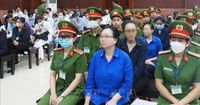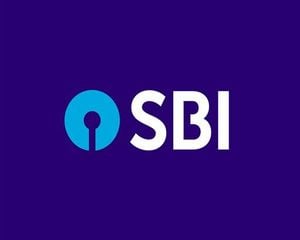On April 3, 2025, the Ministry of Justice of Vietnam reported significant progress in recovering assets lost due to corruption and economic crimes, particularly in the high-profile Van Thinh Phat case involving Truong My Lan. This case has been described as unprecedented in its complexity and severity, with the Ministry announcing that over 9,781 billion VND (approximately 415 million USD) had been recovered from various cases of economic misconduct during the first half of 2025. Specifically, authorities completed 2,061 cases, indicating a robust enforcement effort in the ongoing battle against corruption.
The Ministry of Justice emphasized that the Van Thinh Phat case is classified as extremely serious, necessitating a coordinated approach to enforcement. The General Department of Civil Judgment Enforcement has taken charge, collaborating with the Civil Judgment Enforcement Department of Ho Chi Minh City to develop detailed plans for the case's execution. This includes forming working groups and assigning specific tasks to ensure effective control and preparation for the enforcement process.
According to the Ministry's report, the overall performance in civil judgment enforcement has seen improvements. In the first six months of 2025, agencies completed 255,261 cases, marking an increase of 12,957 cases (5.35%) compared to the same period in 2024, achieving a nearly 51% completion rate. In terms of financial recovery, over 57,683 billion VND was retrieved, reflecting a nearly 21% increase over the previous year.
However, the Ministry acknowledged several challenges faced during this enforcement period. The restructuring of government agencies, including mergers and reorganizations, has complicated coordination efforts. Additionally, many cases involve substantial amounts of money and large numbers of affected individuals, further straining resources and necessitating significant manpower and time to resolve.
Truong My Lan, the central figure in the Van Thinh Phat case, founded the Van Thinh Phat Group in 1992, holding 60% of its shares and serving as its Chairman since inception. The case's origins trace back to August 2018 when SCB Bank, under regulatory scrutiny, faced difficulties in providing credit to companies within the Van Thinh Phat Group. In response to these challenges, Lan and key associates orchestrated the issuance of 25 fictitious bond codes, totaling over 308 million bonds, which were sold illegally to mobilize capital from 35,824 investors.
The funds raised through these bonds were misappropriated for various purposes, including repaying bank debts and financing personal projects, leading to a major financial collapse and the inability to honor bond repayments. By October 7, 2022, it was reported that Lan and her accomplices had illegally appropriated over 30,081 billion VND from investors.
Further investigations revealed that from 2012 to 2022, the Van Thinh Phat Group utilized 23 companies, both domestic and international, to facilitate the illegal transfer of approximately 4.5 billion USD (about 106,730 billion VND) across borders. In addition to fraud, Lan and her associates faced charges of money laundering, involving an estimated 445,747 billion VND sourced from embezzled funds of SCB Bank.
In 2024, a court sentenced Truong My Lan to life imprisonment for fraudulent appropriation of property, along with additional sentences for money laundering and illegal currency transport, totaling a lifetime sentence. The court also mandated her to compensate over 30,000 billion VND to the affected investors.
Despite her severe sentencing, reports indicate that Lan has managed to execute approximately 8,000 billion VND of her financial obligations, representing about a quarter of her total liabilities in the case. The High-Level People's Procuracy is expected to continue efforts to recover an additional 15,000 billion VND from other organizations and individuals involved.
During the legal proceedings, Lan requested the court to waive a 30 billion VND fee, arguing her eligibility for exemption as a senior citizen. However, the High-Level Procuracy noted that she did not meet the criteria for financial hardship required for such exemptions.
Other defendants in the case include Truong Hue Van, a former general director of Windsor Property Management Group, who was implicated in facilitating the transfer of 1,000 billion VND for purchasing primary bonds. Van was sentenced to five years for her involvement in fraudulent activities.
Tran Thi My Dung, former deputy general director of SCB Bank, played a crucial role in aiding Lan’s bond issuance, resulting in significant losses. Dung received a combined sentence of 14 years for her actions, which included both fraud and money laundering.
As the appellate proceedings unfold, the High-Level People's Procuracy has proposed reductions in sentencing for several defendants who have shown remorse and taken steps to remedy the financial damages caused. These considerations reflect a more lenient approach for those who have cooperated with authorities.
Despite the complexities and the serious nature of the crimes committed, the legal system's response aims to balance justice with the possibility of rehabilitation for certain offenders. The ongoing efforts to recover lost assets and enforce judicial decisions underscore the commitment of Vietnamese authorities to combat corruption and uphold the rule of law.
As the case continues to develop, it remains a focal point for public scrutiny and a critical test for Vietnam's judicial system in addressing high-profile corruption cases. The Ministry of Justice’s proactive measures and the ongoing enforcement actions signal a determined stance against economic crimes, reflecting a broader commitment to restoring public trust and ensuring accountability.





